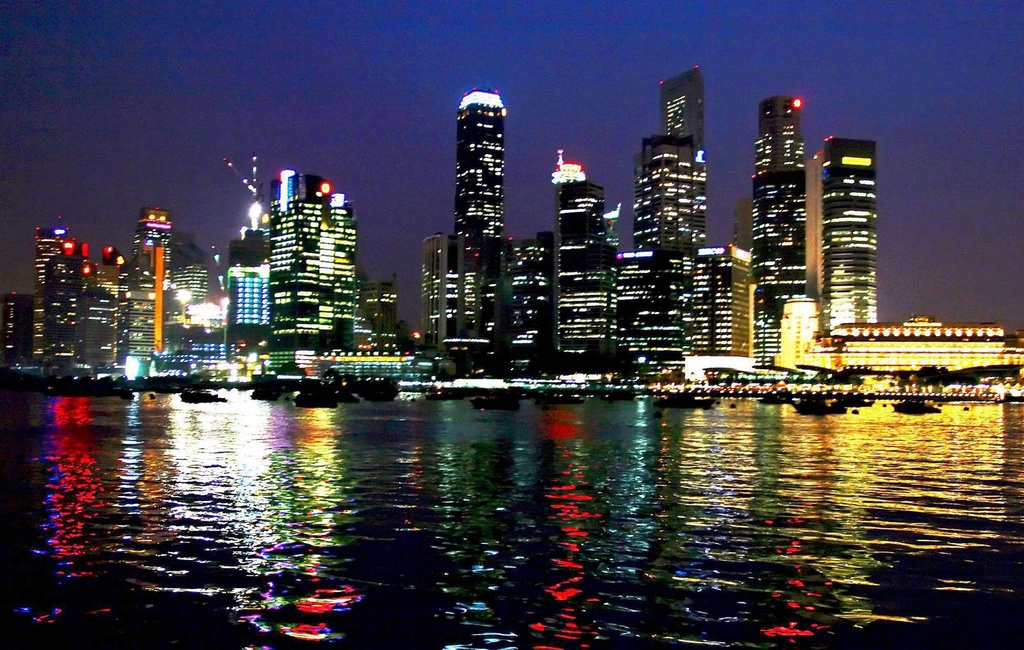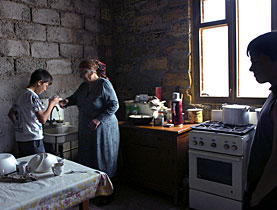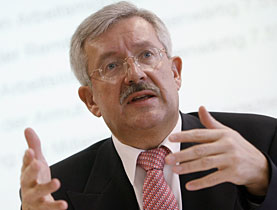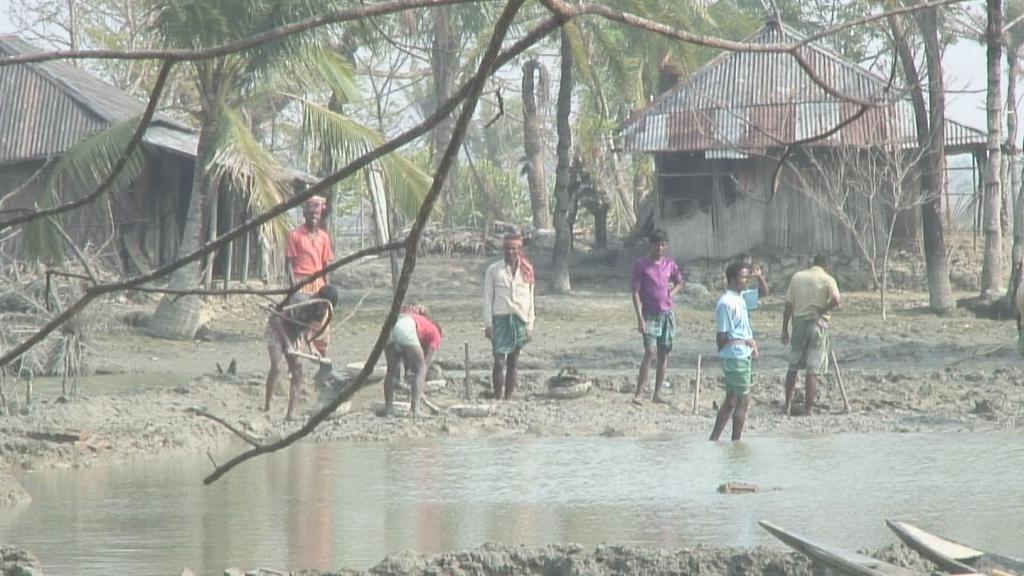Development goal progress “partly reversed”

Progress on the Millennium Development Goals (MDGs) over the past decade has been mixed, with the global economic crisis undermining advances, say Swiss aid officials.
World leaders are meeting on Monday at a three-day summit in New York to push for action on the MDGs, which include targets to cut extreme poverty and child mortality by half and to reverse the spread of HIV/Aids by 2015.
In a call to action last week, United Nations Secretary-General Ban Ki-moon said the eight MDGs were “difficult and ambitious, but doable” by the 2015 target with high-level political engagement and billions of additional dollars.
But he warned that “many countries are falling short, especially in Africa” and “inequities are growing within and among countries”.
In its latest MDG report published in June, Switzerland said progress over the past ten years had been “mixed”.
Major advances have been achieved in halving the proportion of people living on less than $1 a day, achieving universal primary education, eliminating gender disparity in primary and secondary education and access to clean water, explains Martin Dahinden, the director of the Swiss Agency for Development and Cooperation (SDC).
“But positive developments up to 2007 were partly reversed by the effects of the economic and financial crises in 2008 and 2009,” he told the media in Bern last week.
In 2009 a billion people worldwide were still suffering from hunger, partly as a result of rising food prices. Goals concerning access to basic sanitation, the under-five mortality rate and maternal health were unlikely to be met by 2015 and a number of environmental objectives had worsened, said the SDC chief.
While progress had been seen in China, India and Southeast Asia, most of sub-Saharan Africa – home to half the 1.4 billion people living in extreme poverty – lagged behind.
An additional 92 million Africans joined this figure between 1990 and 2005 and the economic and financial crises hit the continent especially hard, pushing 28 million more into extreme poverty in 2008 alone, says the SDC.
Deficient draft
UN member states are due to adopt a declaration text at the end of the summit that spells out ways of accelerating implementation of MDGs in the next five years.
But some aid agencies have criticised the 31-page declaration as lacking specifics.
“Oxfam’s main problem with this is that it’s not action orientated,” said Oxfam spokeswoman Louis Belanger. “There’s little of the ‘how’ these commitments will be achieved.”
But Ban defended the draft declaration saying it was a “very concrete, detailed and deliverable plan of action”.
“You need to be realistic,” he said. “This outcome document is the maximum and best we could expect at this time… We need to always base our policies and priorities by considering the realities on the ground.”
More money v reforms
The UN says overseas development aid for Africa alone must be increased by at least $20 billion a year to help meet the MDGs.
The summit is expected to remain vague on large-scale funding. The Swiss government, however, announced on September 17 that it had agreed a draft law aimed at increasing development aid to 0.5 per cent of Gross National Product (GNP) by 2015.
The additional funds – SFr404 million over two years – are to be used for climate and water projects, according to the foreign ministry.
Peter Niggli, director of the Swiss NGO Alliance Sud, said his organisation would be pressing the Swiss government to give a greater share of Swiss aid to poorer states.
“The quality of Swiss programmes and the choice of where aid is allocated are better, but the amount of Swiss aid for poor countries is still the same as in 2000,” he told swissinfo.ch.
But Daniel Fino, a development aid specialist at the Geneva-based Graduate Institute, feels the future focus should be on national policies, reforms and good governance in poor countries rather than funds.
“Resources are important, but if national policies are not more solid, we will never get anywhere,” he said.
Focus, focus…
The development experts also called for greater policy coherency from the Swiss.
“Switzerland’s cooperation policy is very interesting,” said Fino. “But if you look at the share of resources devoted to MDGs, only a quarter goes to poor countries. And with globalisation Swiss cooperation has other interests like emerging countries and China.”
Niggli felt poor countries would benefit considerably from Switzerland relaxing its strict patent rules in sectors like health, and granting them fairer taxation agreements.
“It is estimated there is some SFr360 billion in non-taxed income held in Swiss banks from developing countries, which could generate up to SFr6 billion in income for them, or three times the current level of Swiss aid,” he added.
Christine von Garnier, executive secretary of the Swiss branch of the Réseau Afrique-Europe Foi et Justice NGO, said it was high time for Switzerland to show leadership on “global coherence” issues.
“Some countries [Sweden and Germany] have already set up independent bodies to monitor the impact of their economic, commercial, tax and environmental decisions on development policy and human rights,” she wrote in Le Temps newspaper last week. “What is Switzerland, with its humanitarian tradition, waiting for?”
The Millennium Development Goals (MDGs) are eight international development goals that all 192 United Nations member states and at least 23 international organizations have agreed to achieve by the year 2015.
They include:
• Goal 1: eradicating extreme poverty and hunger
• Goal 2: Achieve universal primary education
• Goal 3: Promote gender equality and empower women
• Goal 4: Reduce child mortality rate
• Goal 5: Improve maternal health
• Goal 6: Combat HIV/AIDS, malaria, and other diseases
• Goal 7: Ensure environmental sustainability
• Goal 8: Develop a global partnership for development
US President Barack Obama, German Chancellor Angela Merkel and French President Nicolas Sarkozy will be among the 140 world leaders attending the MDG summit in New York from September 20-22.
Switzerland will be represented by Foreign Minister Micheline Calmy-Rey.
Swiss development aid now stands at 0.5 per cent of gross national product (GNP) – short of the UN Millennium Development Goal of 0.7%.
The SDC has a staff of around 600 people in Switzerland and abroad. It also employs some 1,000 locals and has an annual budget of about SFr1.5 billion.
Together with funds from the State Secretariat for Economic Affairs (Seco), official development aid amounted to around SFr2.5 billion in 2009.
40% of the funds go towards multilateral aid, including UN agencies.
Last year non-governmental organisations contributed a further SFr500 million.

In compliance with the JTI standards
More: SWI swissinfo.ch certified by the Journalism Trust Initiative





You can find an overview of ongoing debates with our journalists here. Please join us!
If you want to start a conversation about a topic raised in this article or want to report factual errors, email us at english@swissinfo.ch.